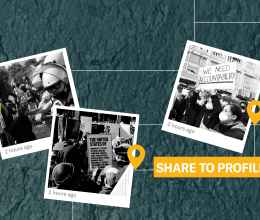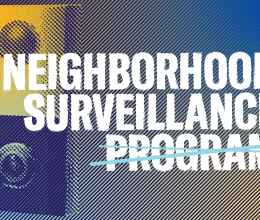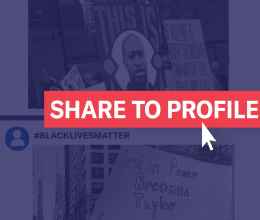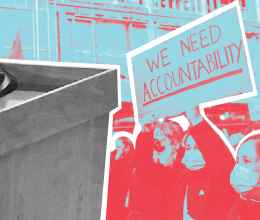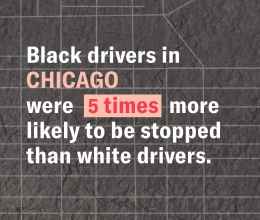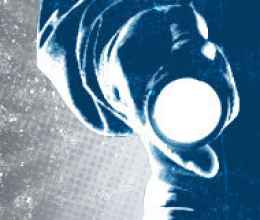
CHICAGO -- The American Civil Liberties Union of Illinois today issued a series of privacy safeguards for the use of body cameras by police in the state. Last week, a group of state legislators announced that they will seek approval of legislation during the Fall Veto session that would facilitate the use of body cameras by law enforcement across Illinois.
The issue of body cameras on police has drawn significant public attention in the weeks since the shooting of an unarmed teenager (Michael Brown) by a police officer in Ferguson, Missouri. The response and protests to that shooting -- including calls for more oversight and transparency of law enforcement -- has led many to suggest the widespread use of police body cameras.
The ACLU of Illinois today made clear that they are "persuaded that with the application of several basic privacy protections up-front, before the technology of body-worn police cameras are widely-utilized, we can achieve the desired oversight and monitoring of police without creating yet another tool for routine surveillance of the public. In short, the American Civil Liberties Union believes that we can make the use of police body cameras a 'win-win' for the public and for police."
The ACLU's statement urges policy makers to address four critical areas before permitting the broad use of police body cameras: notice to civilians; when to record; retention of images; and, disclosure of images.
With regard to notice, the ACLU simply recommends that police officers recording a conversation with a civilian or group of civilians, he or she must notify those present that they are recording the conversation.
The most widely debated issue across the nation on the use of body cameras by police is when and what conversations are to be recorded. Some have suggested, unfairly, that the cameras ought to be recording throughout an officer's shift. This would be wrong, in the view of the ACLU, and impose on the privacy of individual officers. Instead, the ACLU recommends that police record all conversations between police and civilians. The ACLU makes a single exception to this policy -- barring officers from recording interactions involving First Amendment activities (e.g., a protest, demonstration or rally) absent some reasonable suspicion of criminal activity. This exception is made to protect this expressive activity that should not be captured and catalogued by police.
Once recordings are made by police, the issue of how long they should be retained is the next important issue. The ACLU recommends that recordings be destroyed at the end of 90 days unless an encounter has been flagged. Flags would occur if force was used by the police, where a detention or arrest has occurred, or where a formal or informal complaint has been filed.
The ACLU also suggests that disclosure of any of these video images be tightly controlled. Individuals who are recorded (and their lawyers) should have access to these recordings, according to the group. Also, members of the public should have access to flagged recordings. But the ACLU believes that any video that is not flagged should not be released to the public. And, police should disclose recordings to other government agencies only when they contain evidence of crime or are relevant to an on-going investigation.
In addition to these areas, the ACLU suggests that police report about the use of the cameras -- how many conversations are flagged and used. And, the ACLU urges that police work with academics to study the impact of such cameras on the streets of our communities.
The ACLU concludes by noting that "in a modern age of technology, we have the capacity to use new tools to address old problems." The organization believes that the use of body cameras by police can be a new, positive tool, if instituted with the appropriate privacy guidelines.
